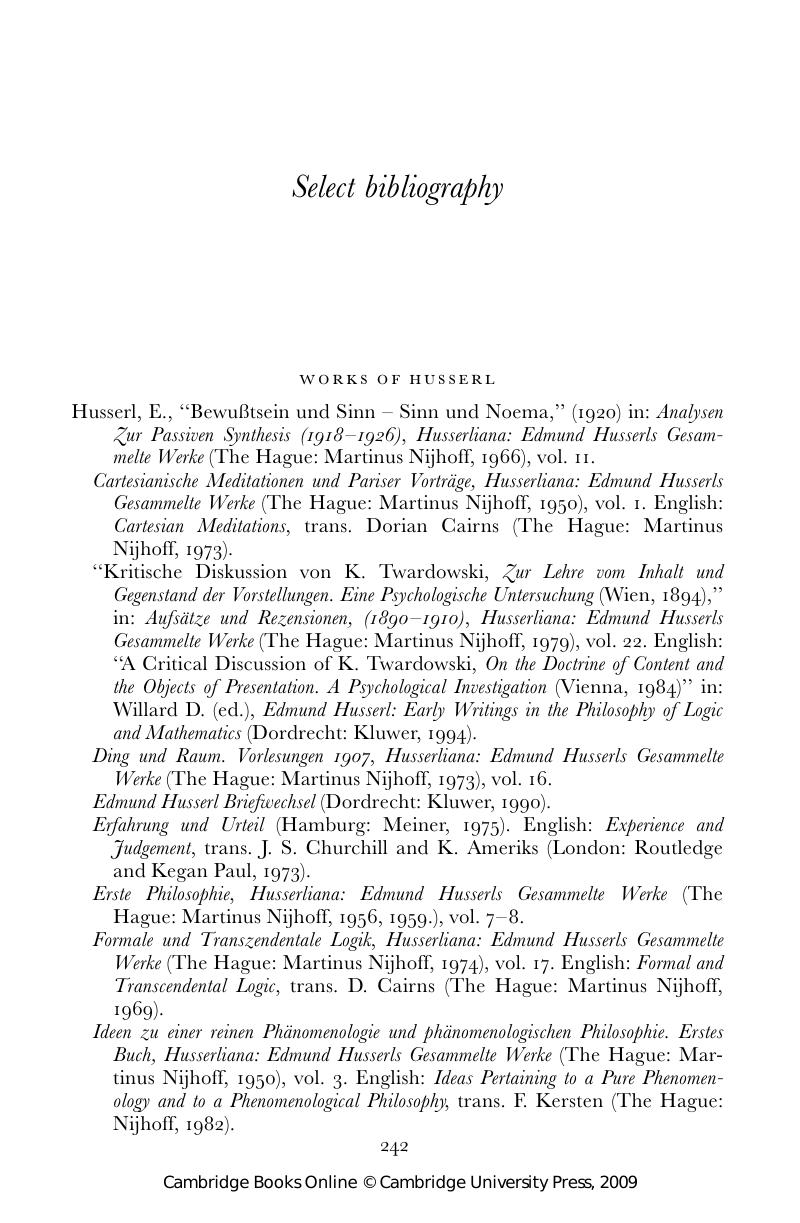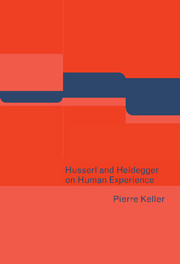Book contents
- Frontmatter
- Contents
- Introduction
- 1 Experience and intentionality
- 2 Husserl's methodologically solipsistic perspective
- 3 Husserl's theory of time-consciousness
- 4 Between Husserl, Kierkegaard, and Aristotle
- 5 Heidegger's critique of Husserl's methodological solipsism
- 6 Heidegger on the nature of significance
- 7 Temporality as the source of intelligibility
- 8 Heidegger's theory of time
- 9 Spatiality and human identity
- 10 “Dasein” and the forensic notion of a person
- Select bibliography
- Index
Select bibliography
Published online by Cambridge University Press: 02 November 2009
- Frontmatter
- Contents
- Introduction
- 1 Experience and intentionality
- 2 Husserl's methodologically solipsistic perspective
- 3 Husserl's theory of time-consciousness
- 4 Between Husserl, Kierkegaard, and Aristotle
- 5 Heidegger's critique of Husserl's methodological solipsism
- 6 Heidegger on the nature of significance
- 7 Temporality as the source of intelligibility
- 8 Heidegger's theory of time
- 9 Spatiality and human identity
- 10 “Dasein” and the forensic notion of a person
- Select bibliography
- Index
Summary

- Type
- Chapter
- Information
- Husserl and Heidegger on Human Experience , pp. 242 - 257Publisher: Cambridge University PressPrint publication year: 1999

